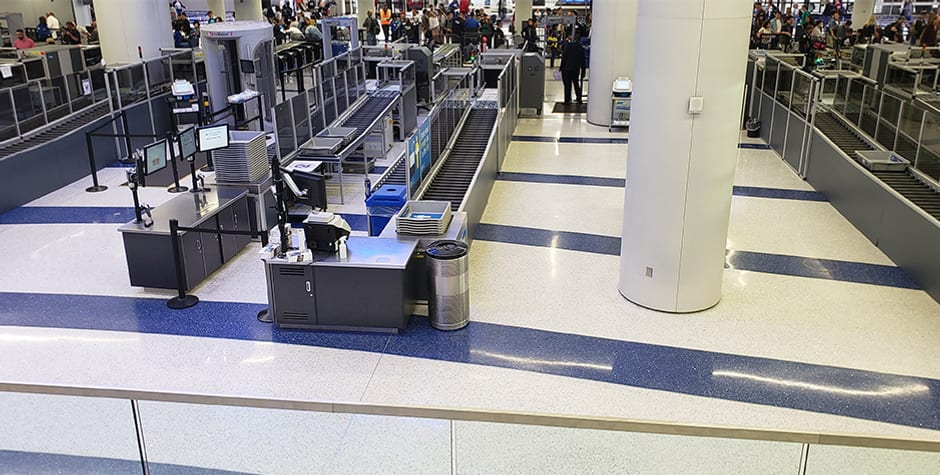ACLJ Taking on TSA as Agency Denied Our Client's Religious Accommodation To Attend Church
Listen tothis article
The ACLJ represents a Transportation Security Administration (TSA) employee who was denied a religious accommodation to attend church despite the agency offering a similar nonreligious accommodation to a fellow coworker.
Our client simply wanted to take off early on Sundays to attend her weekly church service. Those hours could then be made up on another shift where help was needed. Our client has dedicated the last 14 years to the TSA. Until recently, she never had to choose between her religion and her job. The TSA initially denied our client’s accommodation because it would violate the agency’s policy to work another shift that our client was not assigned. However, this never made sense because the TSA allowed another employee to work an alternate schedule for nonreligious reasons. As explained below, this provides evidence of religious discrimination against our client in violation of federal law.
The ACLJ is fully engaged and committed to protecting religious liberty in the workplace. In just the last month, we have informed you of other employees we represent who have been forced to choose between their jobs and their religious beliefs (here and here). In 2022, we filed an amicus brief at the United States Supreme Court in the landmark decision, Groff v. DeJoy, where a unanimous Court expanded the religious civil liberties of employees alleging religious discrimination. Despite the ruling in Groff and 60 years since the passage of Title VII of the Civil Rights Act, it is still unfortunate to see employers, especially government agencies, discriminate on the basis of an employee’s religion.
Title VII makes it unlawful for an employer:
(1) to fail or refuse to hire or to discharge any individual, or otherwise to discriminate against any individual with respect to his compensation, terms, conditions, or privileges of employment, because of such individual's . . . religion,sex, or national origin; or
(2) to limit, segregate, or classify his employees or applicants for employment in any way which would deprive or tend to deprive any individual of employment opportunities or otherwise adversely affect his status as an employee, because of such individual's . . . religion, sex, or national origin.
In other words, employees may not be treated differently because of their religious beliefs or practices. A religious belief or practice to attend church on Sundays falls squarely within Title VII’s broad definition of “religion.” Likewise, Title VII allows employees to request a religious accommodation when a workplace requirement conflicts with an employee’s religious beliefs or practices. Title VII then mandates the employer attempt to accommodate the employee’s religious beliefs or practices. The employer can only deny the accommodation if it poses an “undue hardship” on the employer.
The Supreme Court clarified in Groff that an “undue hardship” means “an employer must show that the burden of granting an accommodation would result in substantial increased costs in relation to the conduct of its particular business.” While some employers think they may deny an accommodation based on a fear that granting one accommodation would result in more employees coming forward with the same request, the Supreme Court has shot down that argument. The unanimous Court in Groff emphasized that bias or hostility toward a religious practice or accommodation cannot be considered a valid defense for violating an employee’s rights under Title VII. Even in a situation where other employees have been granted similar nonreligious accommodations, it’s difficult for an employer to show that granting the same accommodation to attend church is an undue hardship. The very fact that a similar nonreligious accommodation has been granted in the past undercuts an employer’s attempt to prove the same accommodation, this time religious, is an undue hardship. Notably, it also shows that an employee is being treated differently because of their religious practice of attending church.
We continue to work through the federal EEO process as our client’s complaint continues to be investigated. If we do not receive a favorable ruling, we will pursue further legal action against the TSA.
If you or someone you know requested a religious accommodation to attend church and it was denied, your rights under Title VII may have been violated. If you are in need of general information regarding your rights under Title VII, we have a memorandum available here. If you need any legal assistance in this area, please contact us at ACLJ.org/HELP.
